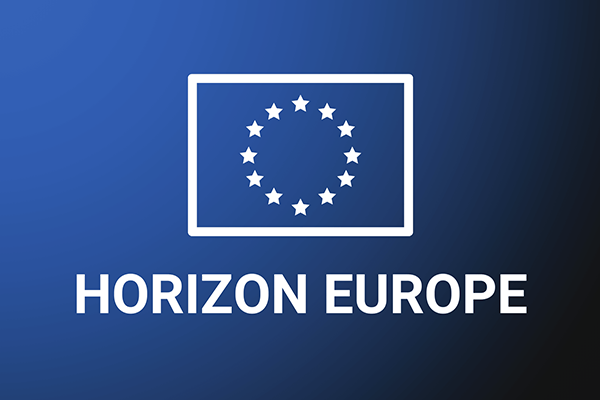
The CoDeF project is an EU Marie Sklodowska-Curie PhD training network focused on the topic of consumer energy demand flexibility. This research project provides a fantastic opportunity for researchers interested in the energy transition. It aims to integrate knowledge of engineering (e.g., mechanical and electrical engineering) and social sciences (economics, sociology, and anthropology) in a doctoral training programme across 8 European research institutions. The CoDeF consortium brings together a multidisciplinary research team from across Europe to train experts in consumer energy flexibility and develop key skills to deliver a just and sustainable energy transition. Consumer energy flexibility is being rapidly acknowledged as a crucial tool as Europe undergoes the energy transition to climate neutrality and energy security. Find more about CoDeF on the Project page.
The project Consumer Demand Flexibility in Electricity Use (CoDeF) pursues the primary objective of training innovative and expert doctoral researchers with a combination of strong research skills and key transferable competencies to face the challenges presented by an emerging aspect of the clean energy transition, consumer energy flexibility. The network integrates the variety of disciplines needed to study consumer energy flexibility and will train participants in research and transferable skills to progress and deliver state of the art research in their fields.
Consumers and citizens will play an important role in the transition to net zero carbon energy through flexible energy use and matching demand to available renewable energy supply, thus reducing the need for fossil fuel generation and consumer energy bills. Nonetheless, technical, economic, and societal challenges currently hinder consumer participation in energy markets.
The scientific research focuses on three objectives related to the increased participation of consumers in the provision of demand flexibility:
- Incentives and behaviour: how to incentivise consumer flexibility through behavioural change, demand response interventions, and markets.
- Enabling frameworks: how to facilitate flexible consumer demand through enablers, such as control algorithms and smart grids, smart devices in the home, and institutional frameworks.
- Impact assessment: evaluating the impact of consumer energy flexibility on emissions, the energy system and society.
Each doctoral candidate will carry out specialised research related to one of the objectives, in cooperation with their supervisors and interlinked with other researchers and associated partners of the consortium. Collectively, the doctoral network delivers multidisciplinary, integrated, innovative research outcomes for energy policy and society and a cohort of expert researchers equipped to realise the clean energy transition.
LEI activities in the Project
Development and research of Demand Response (DR) control algorithms in smart grids.
The research work will be carried out in LEI division Smart Grids and Renewable Energy Laboratory, supervised by senior researcher Virginijus Radziukynas and supported by the staff of the Laboratory. The PhD student will be supported by access to Laboratory‘s mathematical models of smart grids, and specialised simulation tools while resting on Laboratory’s experience in power systems research. At the same time, the LEI will benefit from doctoral research by enhanced competence in smart grids field and by knowledge exchange with CoDeF project partners. Altogether, this will help LEI to identify new trends, opportunities and threats in the national energy sector and elaborate better recommendations to Lithuanian institutions and businesses.
The objectives of this PhD research at LEI are (1) investigate the impact of demand response activation / deactivation processes on the grid stability in relation to transient processe, momentary voltage deviations (under-voltages, over-voltages) and over-currents; (2) develop the AI-based DR control algorithms which provide smooth and smart activation of DR units precluding the destabilisation of grid; (3) estimate / measure the effectiveness of the developed algorithms.
The expected results: (1) understanding of dependence of grid operational security on instantaneous massive activation / deactivation of DR capacities; (2) innovative DR control algorithms developed and tested; (3) indicators of effectiveness of DR control algorithms; (4) recommendations for relevant players as DR and flexibility aggregators, grid operators, BRPs and energy suppliers on optimal control of DR process.
Keywords:
Social and behavioural science, Behavioural economics, Energy collection, conversion and storage, renewable energy, Energy systems, smart energy, smart grids, wireless energy transfer, Renewable energy sources, Renewable energy sources, Consumer behaviour, households, energy flexibility, electricity markets
Acronym: CoDeF
Project ID: 101169359
Call: HORIZON-MSCA-2023-DN-01
Total value of the project: 3 635 604.00 EUR (LEI part: 229 327.20 EUR).
Coordinator: University College Dublin, National University Of Ireland, Ireland.
Dalyviai:
- Ruhr-universitaet Bochum, Germany
- Universitetet i Stavanger, Norway
- Katholieke Universiteit Leuven, Belgium
- Copenhagen Business School, Denmark
- Danmarks Tekniske Universitet, Denmark
- Technische Universiteit Delft, Netherlands
- Lietuvos energetikos institutas, Lithuania
Partneriai:
- Eidgenossische materialprufungs- und Forschungsanstalt, Switzerland
- Teknologian Tutkimuskeskus VTT OY, Finland
- Stavanger kommune, Norway
- The Sustainable Energy Authority of Ireland, Ireland
- Electricity Supply Board, Ireland
- Urban Sympheny AG, Switzerland
- Deutsche Energie-agentur GmbH, Germany
- Zurich Soft Robotics GmbH, Switzerland
- Kauno technologijos universitetas, Lithuania
- Aurora Energy Research GmbH, Germany
- LYSE AS, Norway
- Norce Norwegian Research Centre AS, Norway
- Alliander NV, Netherlands
- Nederlandse Organisatie voor Toegepast Natuurwetenschappelijk Onderzoek TNO, Netherlands
- Trefor, Denmark
- Center Danmark Drift APS, Denmark
- AI-nergy APS, Denmark
 |
This project has received funding from the European Research Executive Agency (REA), under the powers delegated by the European Commission via the European Union’s Horizon Europe research and innovation programme under grant agreement No. 101169359. Views and opinions expressed are however those of the author(s) only and do not necessarily reflect those of the European Union or European Research Executive Agency. Neither the European Union nor the granting authority can be held responsible for them. |
Project Team
| Name, surname | Office | phone. | |
|---|---|---|---|
|
LEI Representative |
|||
| Virginijus Radziukynas | 323-AK | +37037401943 | Virginijus.Radziukynas@lei.lt |
|
Project Team |
|||
| Arturas Klementavičius | 322-AK | +37037401937 | Arturas.Klementavicius@lei.lt |





